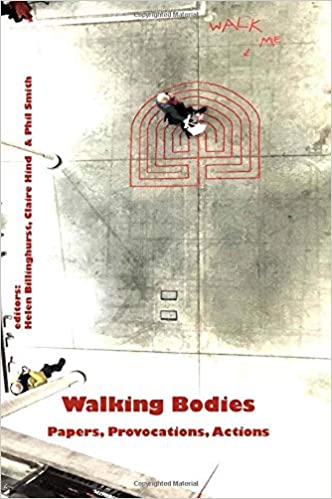
A curated collection of papers, provocations and actions from the ‘Walking’s New Movements’ conference held at the University of Plymouth in November 2019.
The experience and variety of walking practices have never been so broad, relevant or unpredictable. Walking Bodies charts some of their very latest developments.
Editors Helen Billinghurst, Claire Hind and Phil Smith put out a call for artists, activists, academics, radical walkers and psychogeographers to discuss, perform and share their experiences of current walking cultures. In these essays, provocations, artworks and documentations, new terrains emerge and diverse energies and thinkings reflect the huge response to the initial call and the demand for tickets to the conference.
Walking Bodies evidences anxieties, exclusions and gradual but major changes of direction for walking arts, towards more considered and embodied practices that re-navigate their terrains and challenge assumptions about trajectories through the unhuman world. Here are the beginnings of differently negotiated, shared, provoked and provocative ambulations.
Walking Bodies is intended for anyone who makes, or wants to make, walking art or walk-performances – and for anyone interested in psychogeography, radical walking, drift and dérive, site-specific performance.

